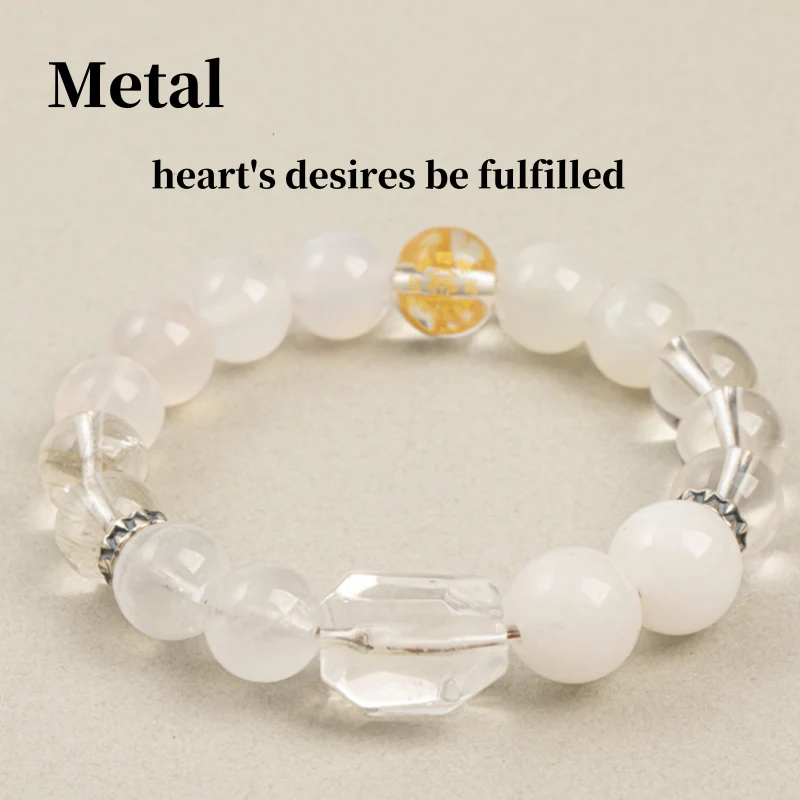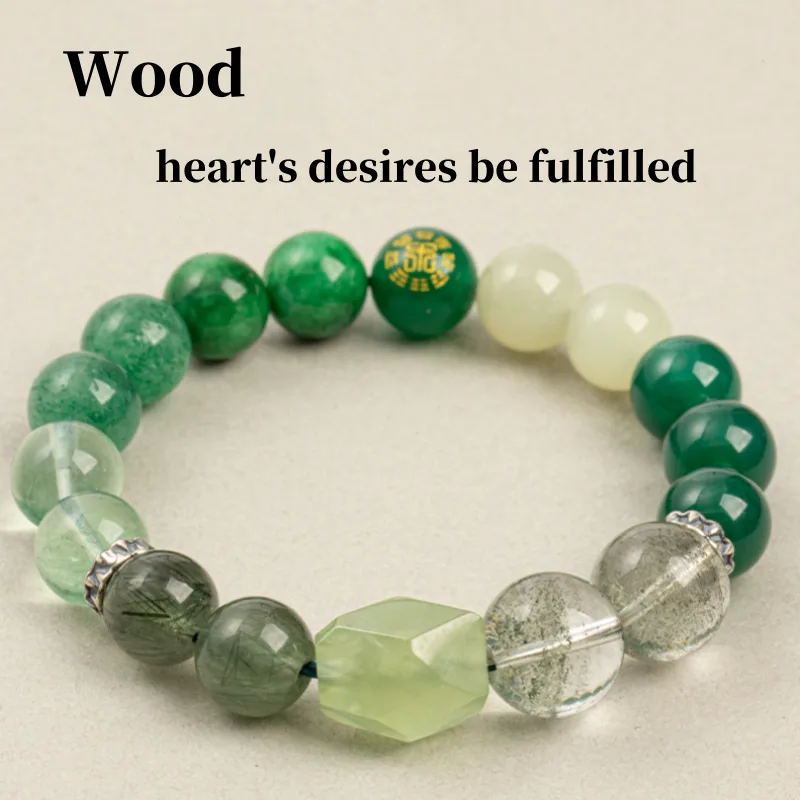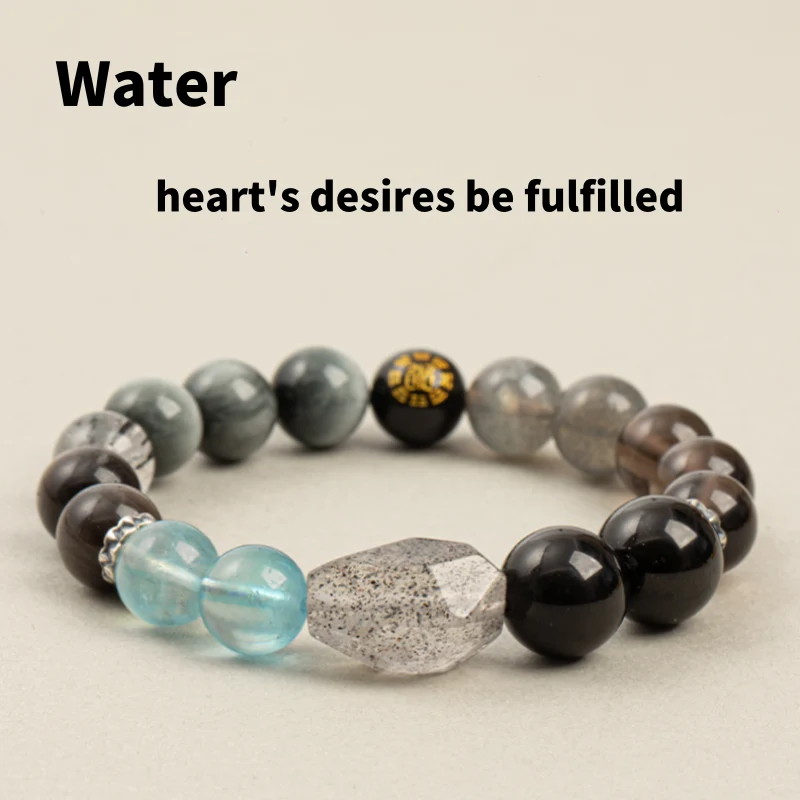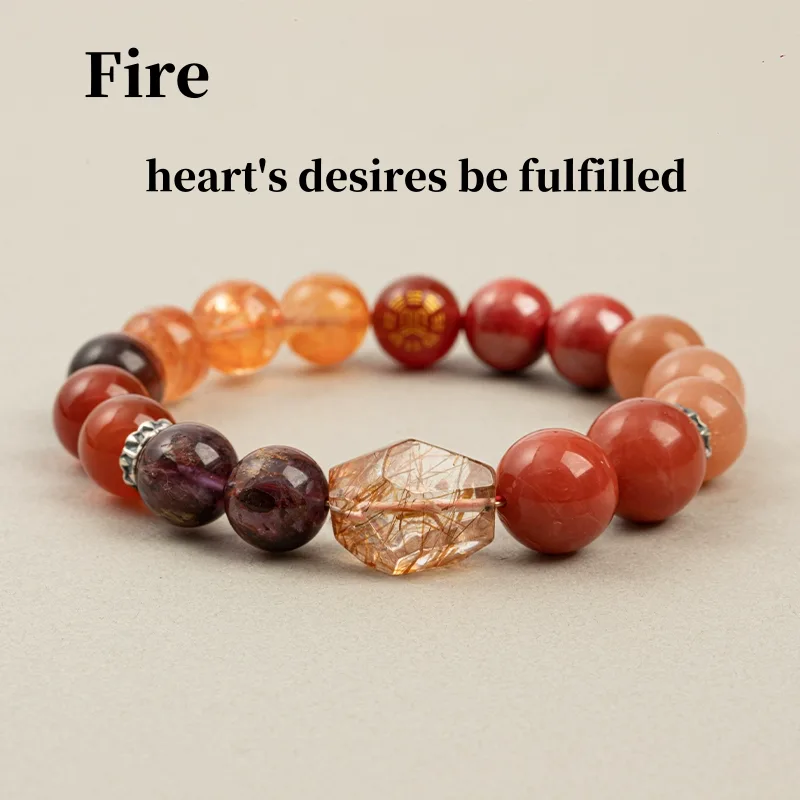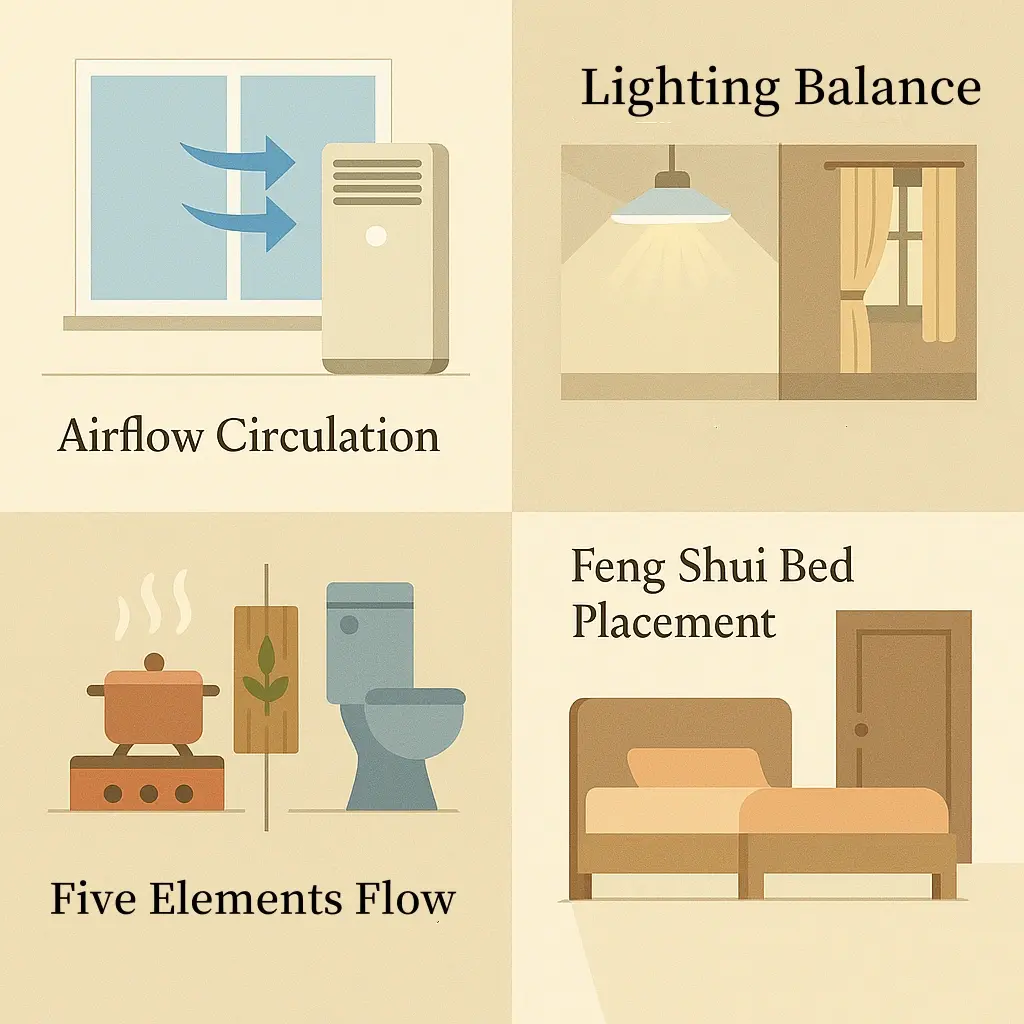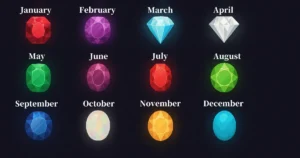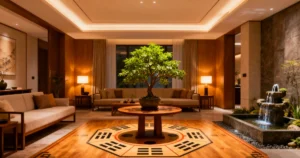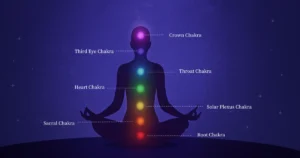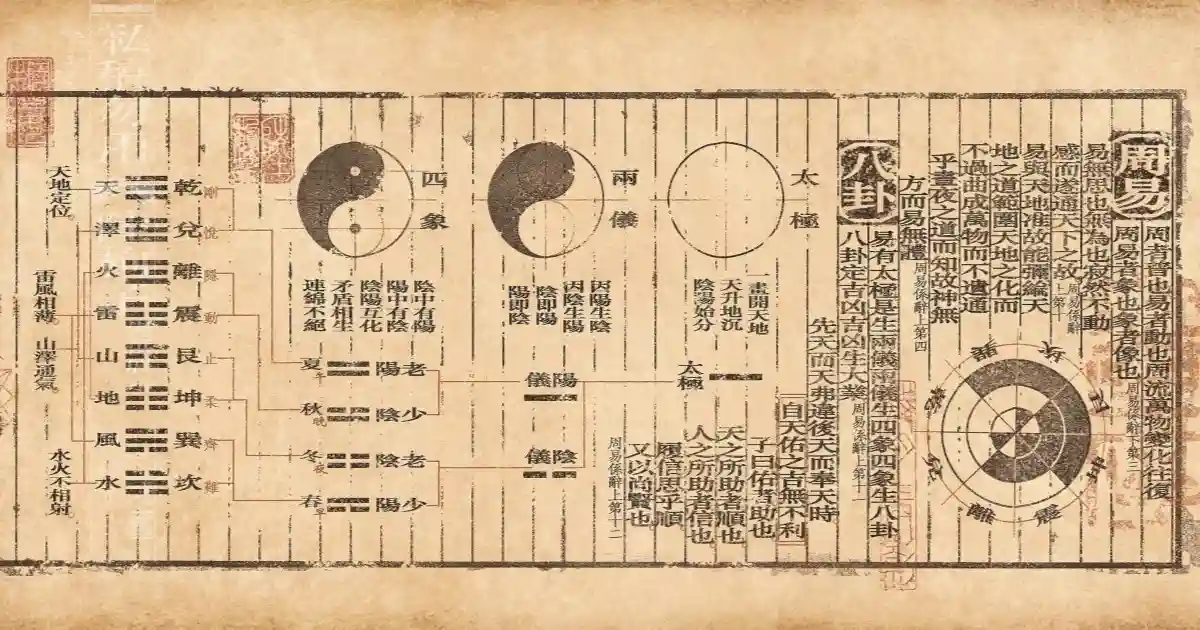
Feng Shui: Ancient Wisdom to Enhance Your Energy in Modern Life
This article starts with the basic concepts of Feng Shui, explores its ancient roots and modern applications, and delves into the mysteries of traditional Feng Shui and modern energy fields to help you use Feng Shui to improve your quality of life. Especially when it comes to bedroom layout and bed placement, it is important to ensure that every detail complies with Feng Shui principles to create a space of harmony and positive energy.
Table of contents:
1.What is Feng Shui? – From a#what-is-feng-shuincient wisdom to modern applications
2.The origin and development of Feng Shui
3.The core principles of Feng Shui: the dynamic balance of Yin and Yang, the Five Elements and Qi
4.The interaction of the Five Elements: How it affects your life and fortune
5.Practical methods of modern Feng Shui: from home layout to personal energy regulation
6.The Chinese Zodiac and the Five Elements: Tailor your fortune-enhancing program
7.Step-by-step guide: Optimize Feng Shui in your home and daily life
8.Scientific verification: Is Feng Shui really “metaphysics”?
9.Conclusion: Let Feng Shui wisdom illuminate your life
1.What is Feng Shui? — From Ancient Wisdom to Modern Applications
Feng Shui is a part of traditional Chinese culture. It mainly studies the impact of the environment on people and how to change people’s destiny by arranging the environment. The core idea is the flow of aura, adapting to local conditions and the balance of yin and yang. The origin of Feng Shui can be traced back to ancient China. As early as the Zhou Dynasty, Feng Shui has been applied to fields such as architectural planning and agricultural production. Traditional Feng Shui is mainly based on topography and natural environmental factors. It achieves the effect of harmonizing the aura and improving fortune by selecting buildings, furnishing homes, and layout.In modern times, Feng Shui is no longer limited to home or office environments—it extends to finer details such as bed placement and bedroom layout, helping enhance one’s personal energy field.
Ancient Feng Shui VS Modern Feng Shui
•Ancient Feng Shui: It was primarily used for selecting the locations of royal palaces and tombs. The layout of cities, such as the Forbidden City in Beijing and Chang’an, followed the principles of Feng Shui.
•Modern Feng Shui: This is more commonly applied to home décor, office spaces, commercial venues, and even the selection of personal accessories, all with the aim of enhancing one’s fortune and energy field.
In today’s globalized world, Feng Shui is no longer confined to Eastern culture. Many Western companies—such as Apple, Google, and others—have incorporated Feng Shui principles into their workplace design to enhance employee productivity and overall business fortune.
2.The Origin and Development of Feng Shui
The origin and development of Feng Shui are closely related to the evolution of human living environment. As a living being, human beings always follow the natural law of “survival of the fittest” and interact with the surrounding environment, especially nature. Driven by the survival ability, people need shelter and withstand the threat of nature. Natural caves and earthen dwellings of primitive power can no longer meet the needs of survival and development, so people began to build simple artificial dwellings.
In the era of lack of geology, meteorology, hydrology and architecture, the ancients often relied entirely on “Feng Shui” to select sites and live.
Feng Shui began in the Han and Jin Dynasties, matured in the Tang, Song and Yuan Dynasties, and reached its peak in the Ming and Qing Dynasties. It is considered an important cultural practice, and there are records of classic works such as “House sutre” and “Burial Books” in the “Siku Quanshu” of the Qing Dynasty.
From the divination site selection in the Shang and Zhou Dynasties to the formation of a complete theoretical system in the Tang Dynasty, Feng Shui gradually integrated the Taoist idea of ”harmony between man and nature” with the theory of yin and yang and five elements. In the 19th century, Feng Shui was formed in Europe by missionaries. British scholar Joseph Needham described it in “Science and Civilization in China” as “the art of reconciling the diversity of the universe.”
This image vividly illustrates the concept of Feng Shui, showcasing symbolic elements that influence prosperity and harmony. The serene natural landscape conveys the following key ideas:
Backing (representing support or reinforcement),
Flourishing or thriving (symbolizing growth and success),
Flowing water gathers wealth (indicating that movement and change can bring prosperity),
Support (emphasizing the importance of strong backing in life),
Treasure bowl (symbolizing wealth and abundance).
These principles collectively emphasize the balance and flow of Qi in the environment, symbolizing a place that fosters vigorous growth. The arrangement creates a harmonious landscape that is beneficial for wealth and good fortune.

3.The core principles of Feng Shui: the dynamic balance of Yin and Yang, the Five Elements and Qi
Feng Shui is centered around the flow of chi – the life energy that moves through a space. The flow and quality of chi is influenced by two key principles: the balance of yin and yang and the interaction of the five elements.
Balance of yin and yang: Yin and yang represent the dual forces of the universe – such as day and night, stillness and movement. A good Feng Shui layout strives for harmony between yin and yang to keep the energy in balance within a space.
Interaction of the five elements: The five elements – metal, wood, water, fire and earth – interact with each other through cycles of generation and control. These relationships influence a person’s fortune, health and emotional state.
Chi in Feng Shui:
Positive Chi: Clean, bright, vibrant environments (often supported by crystals or natural elements) help bring good luck and happiness.
Negative Chi: Cluttered, dark or lifeless spaces disrupt the flow of energy, leading to problems with health, emotions and relationships.
Understanding and adjusting to these dynamics is key to creating spaces of prosperity, harmony and vitality.
4.The interaction of the Five Elements: How it affects your life and fortune
The principle of mutual generation and restraint among the Five Elements is a fundamental concept in ancient Chinese philosophy. It describes the dynamic relationships between the five basic elements: Metal, Wood, Water, Fire, and Earth.
“Generation (Sheng)” refers to the supportive and nurturing interactions—for example, Wood feeds Fire, Fire creates Earth (ash), and so on.
-“Restraint (Ke)” refers to the controlling forces that keep the elements in balance—such as Water extinguishing Fire or Metal cutting Wood.
Balancing these elements within a space is essential for optimizing the flow of Qi. Proper spatial layout, combined with elemental harmony, helps regulate energy and create a more favorable environment.
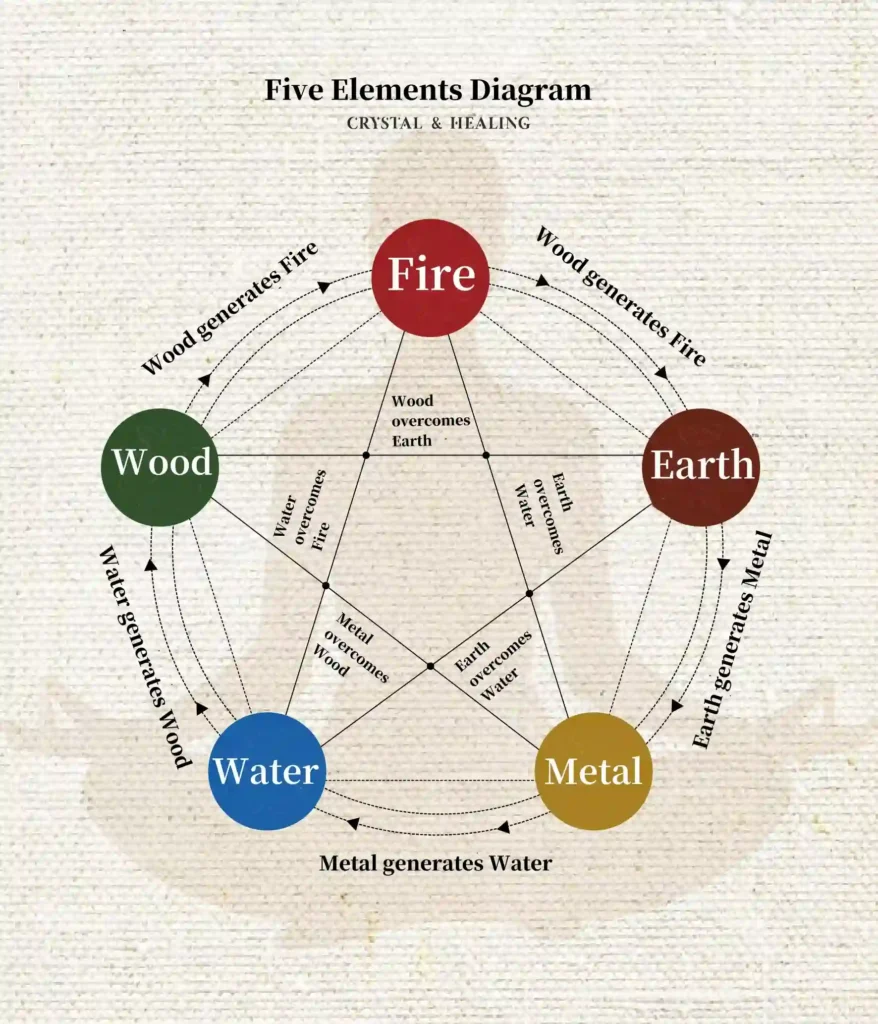
According to the “Five Elements theory”, each person is born with a unique elemental composition—“Metal, Wood, Water, Fire, or Earth”—that influences their personality, fortune, and overall health. When there is an imbalance or deficiency in one of these elements, it can be corrected by using natural minerals that correspond to the missing energy.
One of the simplest ways to align with this energy system is by wearing crystal bracelets that correspond to the Five Elements—for example, “citrine for attracting wealth” or “obsidian for warding off negative energy”.
“Crystal bracelets” are a practical and popular way to supplement elemental energy. Each element represents a different type of energy and can be supported with specific crystals:
“Lacking Metal”: Wear “golden obsidian” or “clear quartz” to boost clarity and decision-making.
“Lacking Wood”: Wear “green phantom quartz” or “aventurine” to support career growth and vitality.
“Lacking Water”: Wear “lapis lazuli” or “obsidian” to enhance wisdom and social connections.
“Lacking Fire”: Wear “red agate” or “Sunstone”o boost confidence and passion.
“Lacking Earth”: Wear “citrine” or “tiger’s eye” to strengthen stability and attract wealth.
By aligning your personal energy with the right elemental support, you can enhance both internal balance and external outcomes in your life.
5.Practical methods of modern Feng Shui: from home layout to personal energy regulation
In modern life, Feng Shui is no longer limited to home layout—it’s widely used to adjust personal energy and improve overall well-being. Practical applications include:
“Home Feng Shui”: Arranging furniture thoughtfully and placing auspicious objects can help balance and enhance the flow of energy within a space.
“Bedroom Feng Shui”: The layout of the bedroom is especially important. Proper bed placement and orientation can significantly improve sleep quality and boost the body’s ability to recover. According to Feng Shui principles, the bed should not directly face the door, as this can create negative energy known as the “door-mirror effect.”
“Feng Shui placement of bed”: To support health and good fortune, the bed’s orientation should align with Feng Shui guidelines. Ideally, the head of the bed should rest against a solid wall for stability and security, and it should not face directly toward windows or mirrors.
“Use door mirrors to dispel negative energy”: If a bedroom door faces a bathroom or staircase—both of which are considered sources of disruptive energy—it is recommended to hang a “Bagua mirror” or a “small convex mirror” (diameter >10 cm) above the door frame to reflect and neutralize the Sha Qi (negative energy).
These adjustments, though subtle, are believed to make a tangible difference in how energy flows through your personal space—supporting both mental clarity and physical well-being.
Avoid Common Feng Shui Bed Placement Mistakes
Proper bed placement is essential for restful sleep and balanced energy in your bedroom. This diagram shows common mistakes—such as placing the bed directly in line with the door or lacking a side table—and contrasts them with the ideal setup, where the bed is positioned diagonally to the door with a clear view but no direct energy clash. Small changes in layout can make a big difference in how supported and secure you feel during rest.
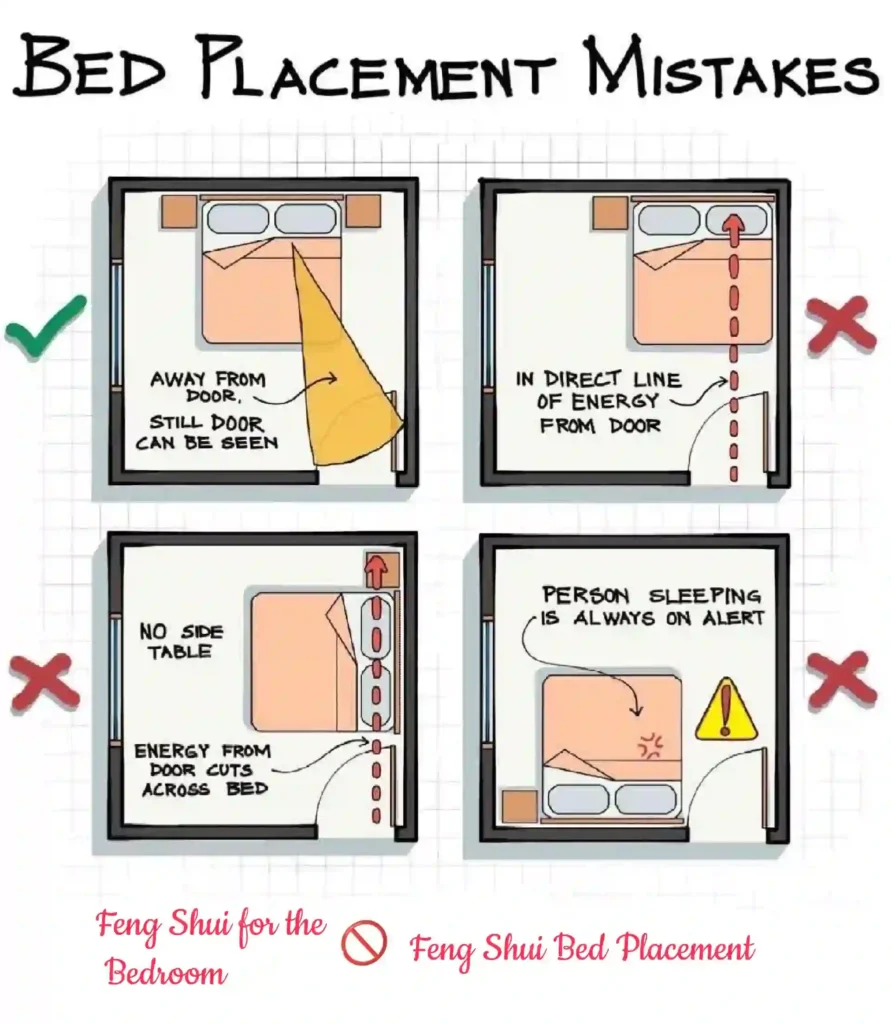
Case:• New York designer Sarah improved her insomnia by 70% by adjusting the placement of her bedroom bed (head of bed facing east + foot of bed away from the door), and was promoted within 3 months (Source: Home Energy Magazine 2023)
“Bill Gates specially set up a crystal energy room in his Seattle mansion. His architect revealed: ‘The placement of crystals in each room has been precisely calculated to correspond to energy fields with different functions’ (Source: Architectural Digest interview)”
- Office Feng Shui: Seat orientation, plant placement, and the use of Feng Shui ornaments can affect career luck.
“After Google’s New York office used Feng Shui principles to adjust the workstation layout, the employee stress index dropped by 41% and creative output increased by 29% (data source: Google Workplace Report 2023)” - Crystal jewelry: Wear personal Feng Shui items such as crystal bracelets and pendants to enhance positive energy.
Angelina Jolie (Tiger, Wood): Wearing a green ghost bracelet all year round to balance her radical personality, and wood-attributed crystals to help expand her charity work
Modern research in environmental psychology at Cambridge University shows that the proper use of Feng Shui can improve: Those who wear jewelry corresponding to the five elements have a 28% reduction in stress hormones
Those who use Feng Shui layouts have a 19% increase in work efficiency
78% of crystal wearers report improved sleep quality
6.The Chinese Zodiac and the Five Elements: Tailor your fortune-enhancing program
The Five Elements Theory believes that there is a close connection between the Five Elements (gold, wood, water, fire, and earth) and the Chinese zodiac. This connection is mainly reflected in the mutual generation and mutual restraint of the Five Elements and the influence of the Five Elements on the character and destiny of the Chinese zodiac. Each zodiac corresponds to a Five Elements attribute. The fortune of each zodiac in different years will be affected by factors such as Tai Sui and the flying stars of the year. The relationship between each zodiac and the Five Elements attributes directly affects personal health and fortune. In the bedroom Feng Shui layout, choosing suitable crystal accessories (such as gold obsidian, green ghost, etc.) and adjusting the Feng Shui of the bed can effectively help improve personal fortune. To resolve unfavorable factors.
🔽 Click on each Chinese zodiac sign below to reveal its Five Element, personality traits, and fortune insights:
🐭 Rat’s Horoscope 2025
2025 brings steady progress for Rats. You’ll feel more grounded and capable of handling life’s ups and downs. Financial opportunities arise, but be cautious with investments. Relationships may flourish if you nurture trust and communication. A good year for self-reflection and setting long-term goals.
Personality: Clever, adaptable, quick-witted but may lack decisiveness
Influence on Destiny: Strong in intelligence and adaptability; needs emotional stability
🐮 Ox’s Horoscope 2025
Oxen will find 2025 a time to embrace change and flexibility. Career advancements are possible if you step out of your comfort zone. Financial stability improves, but avoid impulsive decisions. Health-wise, maintain balance. Love life benefits from patience and understanding.
Personality: Reliable, steady, sometimes stubborn
Influence on Destiny: Stable with support from benefactors; may be overly conservative
🐯 Tiger’s Horoscope 2025
2025 offers Tigers a fresh start. Embrace challenges with courage, and you’ll thrive. Career progress is promising, but avoid hasty choices. Romantic relationships may spark, but be mindful of your temper. Financially, steady growth is achievable through planning.
Personality: Brave, decisive, kind, and resilient
Influence on Destiny: Supports career growth but may face intense competition
🐰 Rabbit’s Horoscope 2025
Rabbits will find 2025 a supportive year for personal growth. Relationships blossom, and your gentle nature attracts positivity. Career opportunities arise, especially in creative fields. Financially, save for the future. Focus on self-care and wellness.
Personality: Gentle, sensitive, energetic
Influence on Destiny: Aids career success, though competition may arise
🐲 Dragon’s Horoscope 2025
Dragons may face mixed fortunes in 2025. Challenges at work test your leadership, but success comes with persistence. Relationships require compromise, and financial risks should be minimized. Embrace patience and adaptability.
Personality: Reliable, composed, goal-oriented
Influence on Destiny: Strong presence and support, but may be too conservative
🐍 Snake’s Horoscope 2025
For Snakes, 2025 emphasizes wisdom and calm. Career shifts are likely, so stay alert for new opportunities. Avoid conflicts in relationships by practicing empathy. Financially stable, but avoid high-risk ventures. Health looks good overall.
Personality: Passionate, intuitive, creative, but impatient
Influence on Destiny: Energetic and charming; needs to manage interpersonal issues
🐴 Horse’s Horoscope 2025
Horses will enjoy a dynamic year in 2025. Energy is high, and projects move forward quickly. Balance is key—pace yourself to avoid burnout. Love life may surprise you with new connections. Financial growth is steady but requires discipline.
Personality: Enthusiastic, independent, creative
Influence on Destiny: Motivated and passionate; should watch impulsiveness
🐏 Goat’s Horoscope 2025
Goats will find 2025 nurturing for personal development. Artistic pursuits shine, and relationships deepen. Be cautious with finances—avoid overspending. Health remains good if you manage stress effectively.
Personality: Kind, reliable, sometimes indecisive
Influence on Destiny: Stable life with helpful connections; may avoid risk
🐒 Monkey’s Horoscope 2025
Monkeys face a year of learning in 2025. Career shifts may challenge you, but adaptability is your strength. Love life may have ups and downs—communication is key. Financially, stay conservative and avoid risky investments.
Personality: Smart, resourceful, determined, sometimes aloof
Influence on Destiny: Brings wealth and opportunity, but relationships may be complex
🐔 Rooster’s Horoscope 2025
Roosters will find 2025 rewarding for career and personal achievements. Hard work pays off, and relationships benefit from honesty. Financial gains are likely, but watch for impulsive spending. Health remains steady.
Personality: Precise, confident, sharp-minded
Influence on Destiny: Attracts recognition and luck; needs emotional openness
🐶 Dog’s Horoscope 2025
Dogs enjoy a balanced year in 2025. Stability in work and love life provides comfort. Focus on building trust in relationships. Financially, it’s a good time to save and plan. Pay attention to your emotional well-being.
Personality: Loyal, dependable, sometimes rigid
Influence on Destiny: Grounded with support; avoid overthinking or stubbornness
🐷 Pig’s Horoscope 2025
Pigs find 2025 a year of reflection and gentle progress. Career moves slowly but steadily. Relationships flourish with openness. Avoid financial risks and focus on long-term stability. Health remains good with proper self-care.
Personality: Wise, gentle, flexible, but may lack urgency
Influence on Destiny: Highly adaptable and insightful; needs internal balance
Yin-Yang and Five Elements system
The Yin-Yang and Five Elements system is the foundation of traditional Chinese environmental science. Its principles can be traced back to Guo Pu’s Book of Burial during the Jin dynasty, which stated:
“Qi disperses when it rides the wind, but is contained when it meets water. The ancients sought to gather it without dispersing and direct it with purpose — this is Feng Shui.”
By adjusting spatial layout and combining it with energy carriers—such as Five-Element energy bracelets—Feng Shui aims to harmonize the magnetic fields of Heaven, Earth, and Humanity, achieving a balanced resonance among the three.
To extend this philosophy into daily life beyond space arrangement, crystal energy bracelets offer a personal and wearable way to restore elemental balance and support overall wellbeing.
Each crystal is associated with an element and can be worn in specific forms to enhance targeted energies.
Here are crystal recommendations based on the Five Elements, along with their corresponding benefits:
✨ Shop by Element: Five Crystal Recommendations
7.Step-by-step guide: Optimize Feng Shui in your home and daily life
Airflow Circulation
Ancient Practice: The Ten Books on Yang Residence emphasized “facing doors and windows to attract fresh Qi,” avoiding stagnant air that creates “dead Qi”.
Modern Application: Open windows for 10 minutes daily, or use an air purifier to maintain PM2.5 below 35μg/m³ (WHO health standard).
Lighting Balance
Yin-Dominant Spaces (e.g., basements): Inspired by the Qing Dynasty classic The Craft of Gardens (Yuan Ye), install full-spectrum LED lights to simulate natural daylight (color temperature: 4000K).
Yang-Dominant Spaces (e.g., west-facing rooms): Follow Huizhou-style architecture by using tall walls and narrow windows, paired with linen curtains to filter excessive sunlight.
Five Elements Flow
Avoid placing the kitchen (Fire element) directly adjacent to the bathroom (Water element). If unavoidable, hang wooden decorations on the shared wall to balance the energy (Wood generates Fire and diffuses Water).
Feng Shui Bed Placement in the Bedroom
Proper bed placement is crucial in bedroom Feng Shui. Avoid positioning the bed head directly under windows or in line with the door to maintain healthy Qi flow and energy stability.
The bed should face an auspicious direction to enhance sleep quality and well-being. Ensure it is not aligned directly with doors or mirrors (“door-mirror clash”), which can disturb mental peace and sleep quality.
Feng Shui is Life: True Feng Shui lies not in complex rituals, but in awareness and respect for your surroundings. Starting today, try moving just one piece of furniture and observe how your mood changes over the course of a week — what the ancients called “the wheel of Feng Shui turns” is, in fact, the wisdom of dynamic balance.
Action Tip: Draw a floor plan of your home, mark the airflow paths and dark corners, and gradually optimize the energy nodes throughout the space.
8.Scientific verification: Is Feng Shui really “metaphysics”?
🌍 Scientific Evidence: The Global Power of Feng Shui Is Greater Than You Think
Feng Shui may have originated in ancient China, but its influence has long transcended borders. Today, it is recognized globally, validated by scientific studies, embraced by multinational corporations, and integrated into modern architecture and wellness design.
🧪Scientific Studies: Surprising Insights from Western Labs
- Space Design & Productivity
Google Headquarters, California: Embracing the Feng Shui principle of “curves create emotional flow”, Google’s campus implemented winding pathways—resulting in a 41% boost in creative output. (Harvard Business Review, 2022)
Lighting Research, Cambridge University: Homes designed with “bright living areas and dim bedrooms”, a key Feng Shui guideline, increased melatonin levels by 27% and improved deep sleep by an average of 35 minutes. - Natural Elements & Energy Fields
Plant Energy, Fraunhofer Institute (Germany): Offices featuring broad-leaf plants like the money tree (a Feng Shui favorite) saw PM2.5 levels decrease by 58% and employee sick leave drop by 23%.
Water Sound & Brainwaves, MIT: Indoor fountains and water features that emit sound frequencies between 100–4000Hz have been shown to stimulate alpha brainwaves, improving decision-making accuracy by 19%.
💼 II. Corporate Case Studies: Feng Shui in Global Business Strategy - Disney’s Strategic Layout
Paris Disneyland: Constructed an artificial lake to neutralize the White Tiger Sha, achieving 15 million annual visitors—surpassing initial forecasts by over 20%.
Orlando’s Magic Kingdom: Adjusted its main street by 15 degrees based on the Naji Avoidance principle, helping it achieve the world’s highest repeat visitor rate at 72%.
Marina Bay Sands, Singapore: Designed with an “embracing curve” entrance, aligned with Bagua energy principles—resulting in an 18% annual growth in visitor flow. - Tech Giants & Energy Optimization
Amazon, Seattle: Built biophilic domes using the Feng Shui concept of “round heaven, square earth”, which increased internal oxygen levels by 31% and boosted employee focus to 1.8x the industry average.
Apple Headquarters: Structured according to the Flying Stars layout from classical Feng Shui, Apple has topped Fortune’s list of “World’s Happiest Workplaces” for five consecutive years.
🧭 Conclusion: You’re Already Using Feng Shui—Even Without Knowing It
Whether you’re adjusting your desk placement or choosing the color of your bedroom walls, you might already be applying Feng Shui principles. From tech giants in Silicon Valley to design icons in Asia, Feng Shui has become a global design science—a bridge between ancient wisdom and modern wellness.
Feng Shui is no longer just a cultural practice; it’s a strategic tool for health, harmony, and high performance.
9.Conclusion: Let Feng Shui wisdom illuminate your life
Now that you’ve grasped the core principles and practical applications of Feng Shui, it’s time to integrate this ancient wisdom into your daily life.
At its heart, Feng Shui is about dynamically aligning your environment with the resonance of your personal energy. You can start by optimizing your home layout or adjusting your work space.
Take Action Today:
- Check if your bed placement aligns with Feng Shui directional principles.
- Hang a Bagua mirror at your entrance to deflect negative external energy.
- Adjust your bedroom’s elemental balance based on your Chinese zodiac sign.
- Choose a crystal bracelet that resonates with your energy.
- Place a clear quartz crystal in the northwest corner of your desk to attract helpful people (nobleman luck).
After 21 consecutive days, track changes in your career opportunities — and explore the real power of this ancient wisdom through your own experience.
Even small changes can lead to surprisingly positive transformations.
Feng Shui is more than a traditional philosophy — it’s a practical tool for improving your quality of life. By applying its principles, you can create a space filled with positive energy, enhance your personal aura, and attract luck and prosperity. Regularly reviewing and fine-tuning your Feng Shui helps you maintain a state of optimal balance in every aspect of your life

